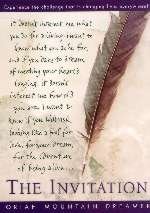 One of the greatest gifts in life can be having a friend who knows you well. You wonder and ponder whether they were with you in another life or silently observing you throughout the years. You experience those moments when you say, "how did you know?", But then it doesn't really matter does it, because they have seen deeply into your being, and to know and be known needs no response at all.
One of the greatest gifts in life can be having a friend who knows you well. You wonder and ponder whether they were with you in another life or silently observing you throughout the years. You experience those moments when you say, "how did you know?", But then it doesn't really matter does it, because they have seen deeply into your being, and to know and be known needs no response at all.The following poem was gifted to me this week from one of those wonderfully amazing friends. Were she and the poet laying on the grass beside me? I wonder...
Thank you, C.
The Sun Lover
The long afternoon after church
a girl lies on the lawn,
glazed thighs slightly parted,
fingers splayed like petals. At sixteen
she is a virgin. While her parents nap
in the quiet house, she knows
the sun is teaching her about love,
how it comes over your body
making every muscle go soft
in its pitiless gaze,
how it penetrates everything,
changing you into something dark
and radiant. She craves it,
knows it is everywhere like God’s love,
but difficult to find. She waits,
entirely still, trying to see her eyelids–
not lingering traces, but the lids themselves
luminous and red as the cheeks of the kid
who stuck a flashlight in his mouth at camp.
She squints so the tips of her lashes
flash like iridescent fish scales.
Every hour, she turns over but prefers
to face the sun. All her life
she’ll measure loves against this
gentle ravishing. She’ll spend afternoons
alone on crowded beaches, and at home
stand naked before mirrors, amazed
by the pale shape of her suit. She’ll touch
her cheekbones’ tingling pink, and nip
at her lover’s shoulders, as if
it were earth she were after.
photo of me at 16























11 comments:
What a lovely image your friend creates! The wonder of our bodies and what they tell us of transcendence ...
Yes, Barbara has the right word: transcendence.
This is another building block (I just had to correct from "building blog" - an accurate slip for what your blog teaches me) in my understanding of that which is incarnational.
And I had EXACTLY the same hair style as you at sixteen! Although brunette of course. Did you ever iron yours?
barbara & tess--since you both used the word "transcendence" i would love to know more about what you are seeing.
i never took the iron to my hair, but did sleep in curlers made out of orange juice cans..."sleep" being a relative term. ouch!
my husband on the other hand, singed his hair more than a few times with the old iron :-)
For me, the last line "as if it were earth she were after" clicked me over into transcendence mode.
That hunger for warmth, penetration, glow is very real in a physical sense. It also bespeaks an inner hunger that the physical is only a foretaste of.
you are most welcome K. When I found that poem I knew I had found it for you. My favorite line each time I read it is "All her life/
she’ll measure loves against this/
gentle ravishing." To be loved so sublimely.
I would love to think we lay on the grass together in another lifetime and have known each other far longer than we imagine. I love you dear friend.
PS -- great photo, beautiful then, beautiful now. :-)
thank you, barbara. i, too, love the play between the inner and outer warmth and hunger.
C--you light up my life :-) love you, too!!! xoxoxoo
Dear Lucy,
"Make a decision to turn our will and our lives over to the care of God, as we understood Him. (Step #11.)"
The last part of this statement - "as we understood Him" - is enough to damn your soul! God says, Trust in the Lord with all your heart and lean not on your own understanding. (Proverbs 3:5).
This is the exact opposite of "God as we understood Him." All men, according to Romans 1:18-32, are condemned before God, because they rely upon their own understanding (Romans 1:21; Ephesians 4:18), "having their understanding darkened" - and they create - in their own darkened minds - a god of their own making (Romans 1:23).
To encourage people to turn their "lives over to the care of God as we understood Him” is to encourage people to "turn their lives over to a god of their own making" - i.e. according to their own understanding.
This promotes nothing more than spiritual death (Revelation 22:15).
In addition, these twelve steps are a deceitful attack against the saving work of the Lord Jesus Christ - i.e. they are against Christ, ANTI - CHRIST, (2 John 7; Colossians 2:8-10).
Love
Micky
words from Richard Rohr you might enjoy:
"How have ordinary moments transformed me?
As Eckhart Tolle points out in The Power of Now, we don’t have to be in a certain place or even a perfect person to experience the fullness of God. God is always given, incarnate in every moment and present to those of us who know how to be present ourselves.
Strangely enough, it is often imperfect people and people in quite secular settings who encounter “The Presence” (Parousia, “fullness”). That pattern is rather clear in the whole Bible.
Let’s state it clearly: One great idea of the biblical revelation is that God is manifest in the ordinary, in the actual, in the daily, in the now, in the concrete incarnations of life, and not through purity codes and moral achievement contests, which are seldom achieved anyway."
Again, Barbara's explanation of the transcendent element mirrors mine.
And I always think of you when I open my morning Rohr quote, because I know you get them too and I love that connection. I was also particularly struck by this one.
love you, tess!!
Post a Comment